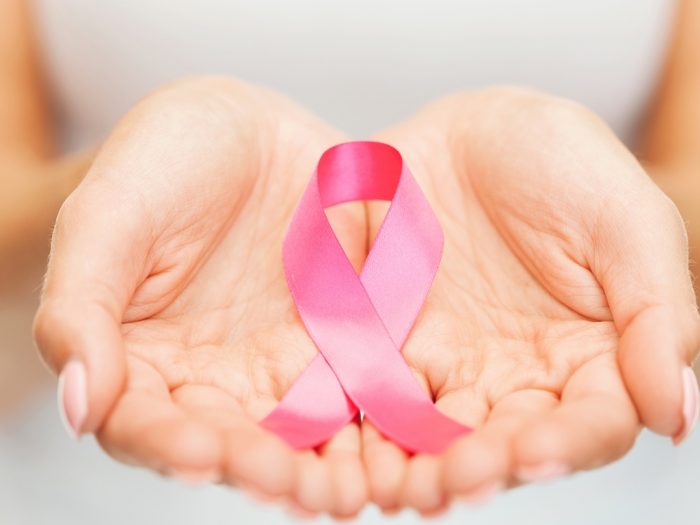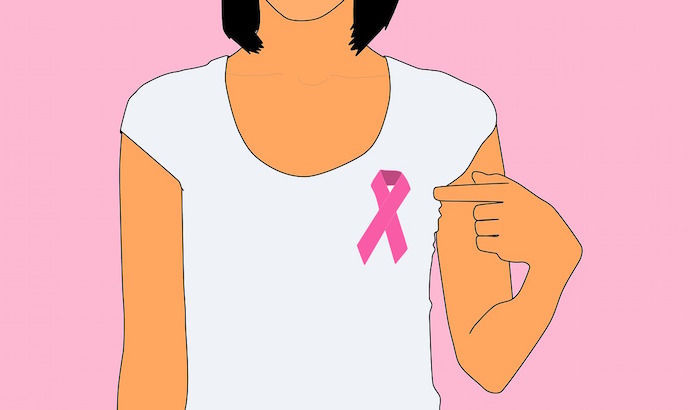
OCTOBRE ROSE 2015 » Dépistage du cancer du sein, courtesy Ris.world.
Channeling her anger into action, nurse Mary Vaughan is using her own battle with inflammatory breast cancer as an opportunity to spread the word about this rare, highly aggressive and often misdiagnosed disease.
A year ago she wasn’t sure she would still be alive to tell her story. She had triumphed over breast cancer once, in 1999, when she was diagnosed with ductal carcinoma in situ, the most common type of noninvasive breast cancer. Because her mother had breast cancer, Vaughan chose an aggressive treatment, a bilateral mastectomy (removal of both breasts) and had immediate reconstruction with silicone implants.
Her doctor at USC told her the cancer had only a 1 percent chance of coming back without chemotherapy or radiation, so Vaughan opted to get back to work and get on with her life.
By 2003 she thought the ordeal was over.
She was wrong.
In April 2003 she developed a severe breast infection. Doctors prescribed antibiotics, which seemed to do the trick. But three months later she woke up to a rash covering much of her chest. Her oncologist thought it was contact dermatitis. Still concerned, Vaughan asked the doctors with whom she worked to take a look. Everyone assured her it wasn’t cancer.
Finally she went to her dermatologist, Dr. Gary Novatt.
“He took one look at it and started talking about cancer,” Vaughan said. “He saved my life, I guess.”
A biopsy confirmed Vaughan’s worst fear at the time: the breast cancer was back.
She went to see her doctor at USC, who told her it was inflammatory breast cancer, or IBC, the most aggressive form of breast cancer and that she had less than a 50 percent chance of living five years.
Her treatment choices weren’t great. With the assistance of Dr. Susan Love, Vaughan opted to participate in a clinical trial at UCLA.
That was a little over a year ago. She began to see improvement right away and is continuing to get her energy back.
“In the beginning, I didn’t have any altruistic motives to go out and save humanity, I just wanted to save my own life,” said Vaughan.
While that still seems unlikely, she is using whatever time she has left to spread the word about IBC.
After communicating via e-mail with patients around the world, Vaughan has concluded: “Misdiagnosis is the most common thing that happens with this kind of cancer.
“Maybe if more people were aware of the symptoms, fewer would be misdiagnosed.”
What To Look For
Inflammatory breast cancer has a number of symptoms, including:
– One breast becomes much larger than the other one (often sudden)
– Warmth and swelling (often sudden)
– Redness or pinkness that may look like an infection
– Itching or pain in the breast that won’t go away
– Dimpling of the skin that looks like the skin of an orange
– Ridges or thickened areas of skin
– Nipple discharge, retraction or flattening
– Change in the color of the areola
– Swollen lymph nodes on the neck or under the arm
– A lump (although often there is no lump)
Source: The Susan G. Komen Breast Cancer Foundation

